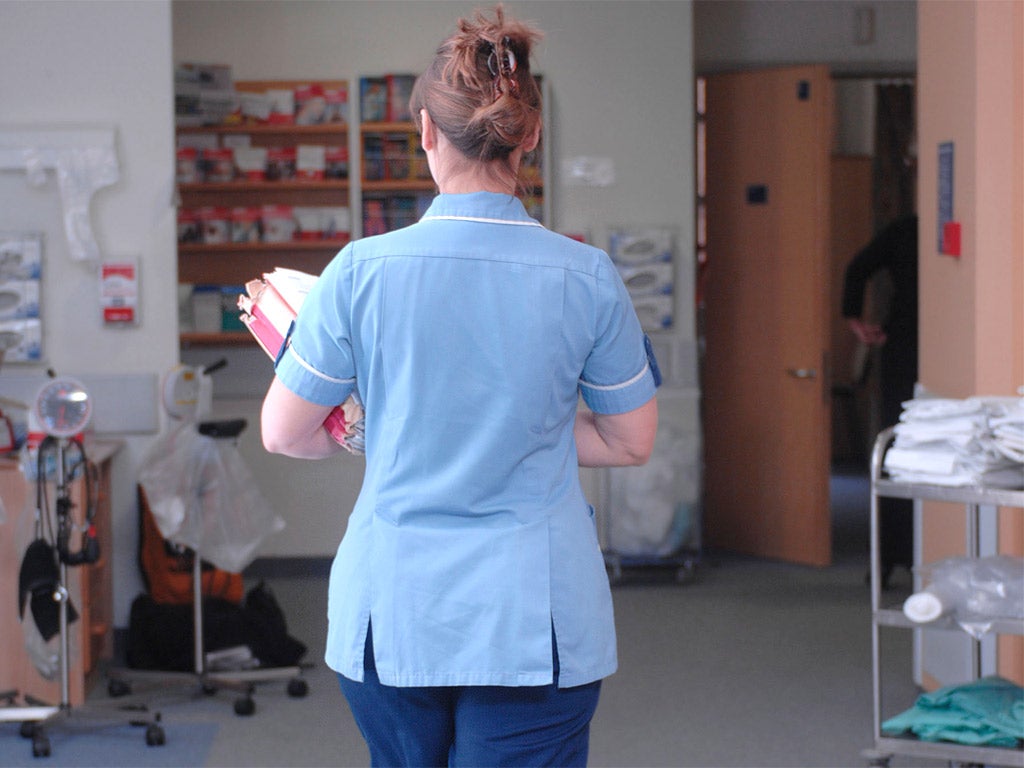Sympathy for doctors flatlines as day of pension strikes dawns
Majority of public do not support action – and most NHS bodies predict minimal disruption

Your support helps us to tell the story
From reproductive rights to climate change to Big Tech, The Independent is on the ground when the story is developing. Whether it's investigating the financials of Elon Musk's pro-Trump PAC or producing our latest documentary, 'The A Word', which shines a light on the American women fighting for reproductive rights, we know how important it is to parse out the facts from the messaging.
At such a critical moment in US history, we need reporters on the ground. Your donation allows us to keep sending journalists to speak to both sides of the story.
The Independent is trusted by Americans across the entire political spectrum. And unlike many other quality news outlets, we choose not to lock Americans out of our reporting and analysis with paywalls. We believe quality journalism should be available to everyone, paid for by those who can afford it.
Your support makes all the difference.Ministers escalated their attacks on doctors' pension costs last night as support for today's strike appeared to be seeping away – with most NHS bodies predicting minimal disruption.
Click HERE to view graphic
As hospitals and GP surgeries announced their plans for the "day of action," Andrew Lansley, the Health Secretary, described the protest as "pointless" and denied the British Medical Association's claim that the doctors' pension scheme was in surplus.
The BMA claimed four out of five hospitals would be affected but reports from hospitals across the country suggested only a handful of operations and a small number of outpatients' appointments will be postponed. Among GPs, less than a quarter are expected to join the strike. Some hospitals warned that A&E wards may be busier than usual with patients who feared they would not get treatment elsewhere.
A poll yesterday showed a majority of the public are against the doctors' action. The ComRes poll for ITV found 51 per cent opposed the strike, a third (32 per cent) supported it and 17 per cent said they were not sure.
A key claim by the BMA is that the doctors' pension scheme is £2bn in surplus – the amount by which contributions from working doctors exceed pension payments to those who have retired. But Mr Lansley said that over the lifetime of those doctors currently in retirement, payments into the scheme would amount to £17bn and pension payments out would be £83bn, leaving a bill of £66bn for the taxpayer. "The BMA claims that the pension scheme is currently in surplus...but this is a gross distortion of the facts. Yes, contributions are currently higher than benefit payments, but they won't be for much longer," Mr Lansley said.
Officials said the £66bn cost to the taxpayer was equivalent to £3,838 for every household, enough to pay the salaries of every nurse in the NHS for seven years. Responding to the Government's claim, Hamish Meldrum, chair of the BMA, said: "The Secretary of State's repeated and blatantly misleading comments about the NHS pension dispute only set back what he purports to seek to achieve – a quick resolution.
"For the thousands of ordinary doctors who will be taking action – the first in almost 40 years – it will sadly confirm that he is simply unable and unwilling to listen to the genuine concerns of NHS staff. This is not good for doctors, for government or, most importantly, for patients and the NHS."
Dr Meldrum accused Mr Lansley of making misleading comparisons.
"The NHS pension scheme does not work by building up a 'pension pot'. Staff working now pay for the pensions of NHS staff who are retired. The scheme is currently bringing in more than it is paying out, removing any justification for the immediate hike in contributions that has been imposed."
The NHS Confederation, representing NHS managers, warned the strike could damage relations among staff. Dean Royles, director of the NHS Employers organisation, part of the Confederation, said: "Feelings run high about industrial action. An ill-timed word or comment between staff can contaminate relationships and poison working environments for months or years to come."
Mike Farrar, chief executive of the Confederation, said: "Whatever the right and wrongs of this dispute between doctors and the Government, I feel passionately that patients should not be dragged into the argument."
Join our commenting forum
Join thought-provoking conversations, follow other Independent readers and see their replies
Comments